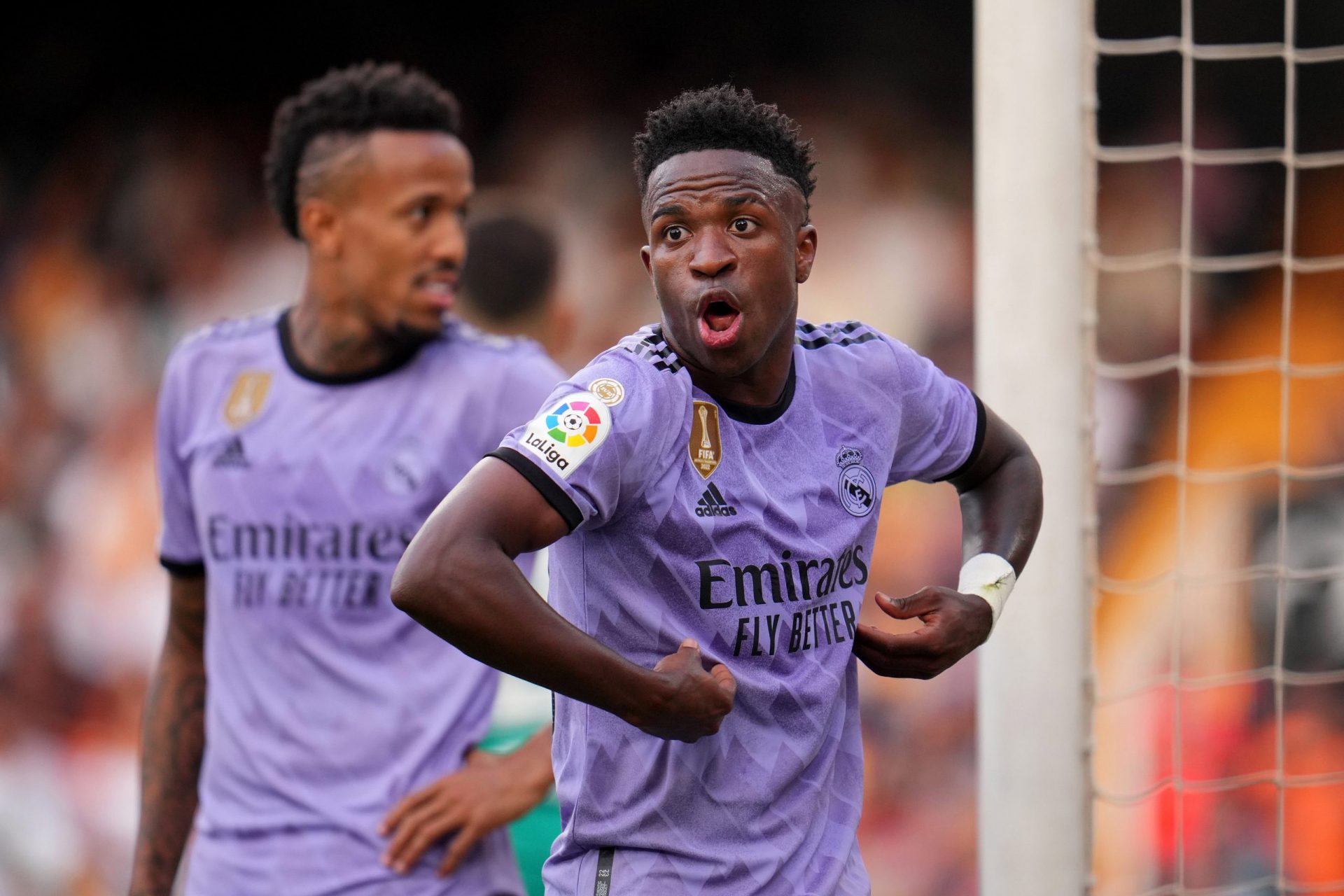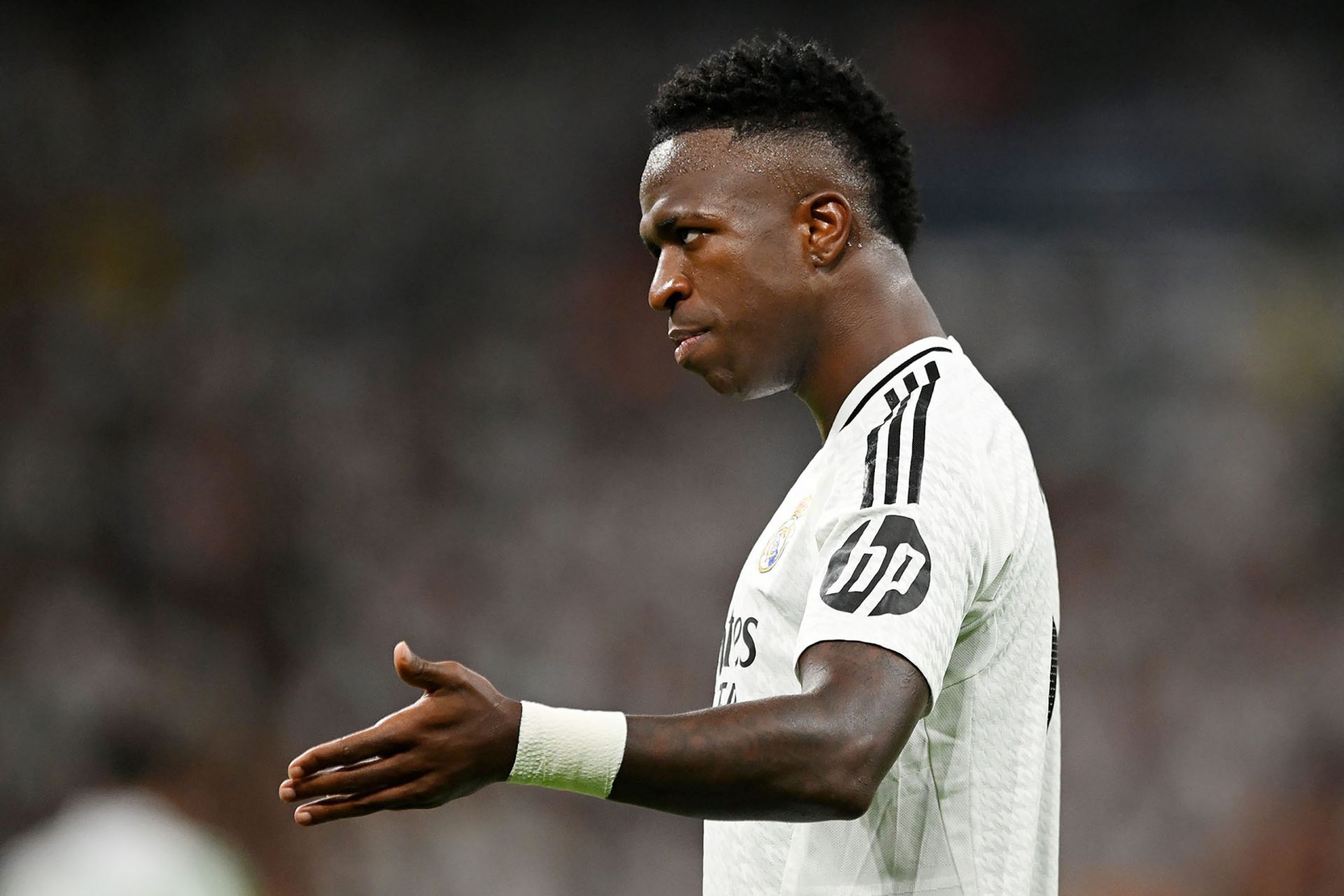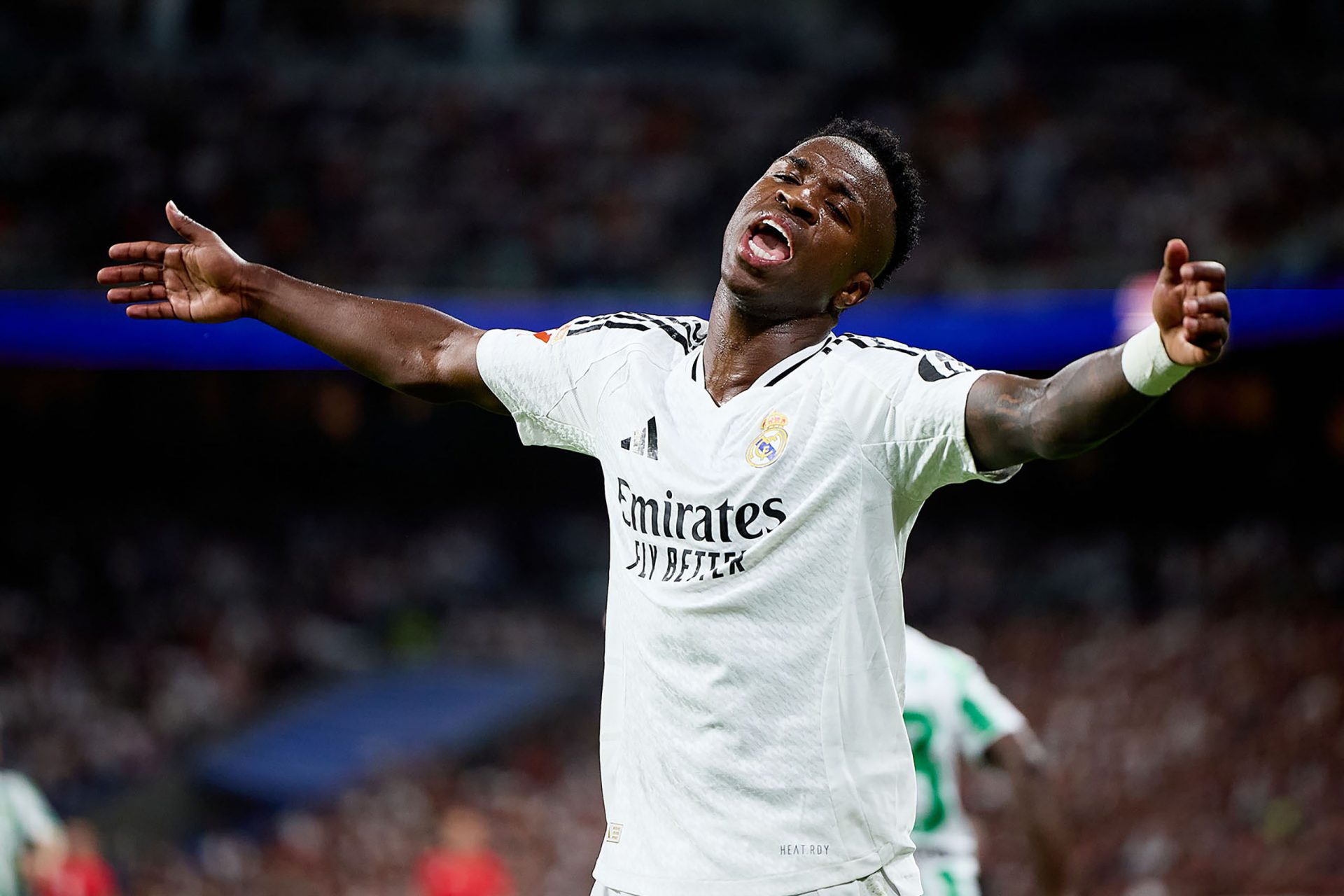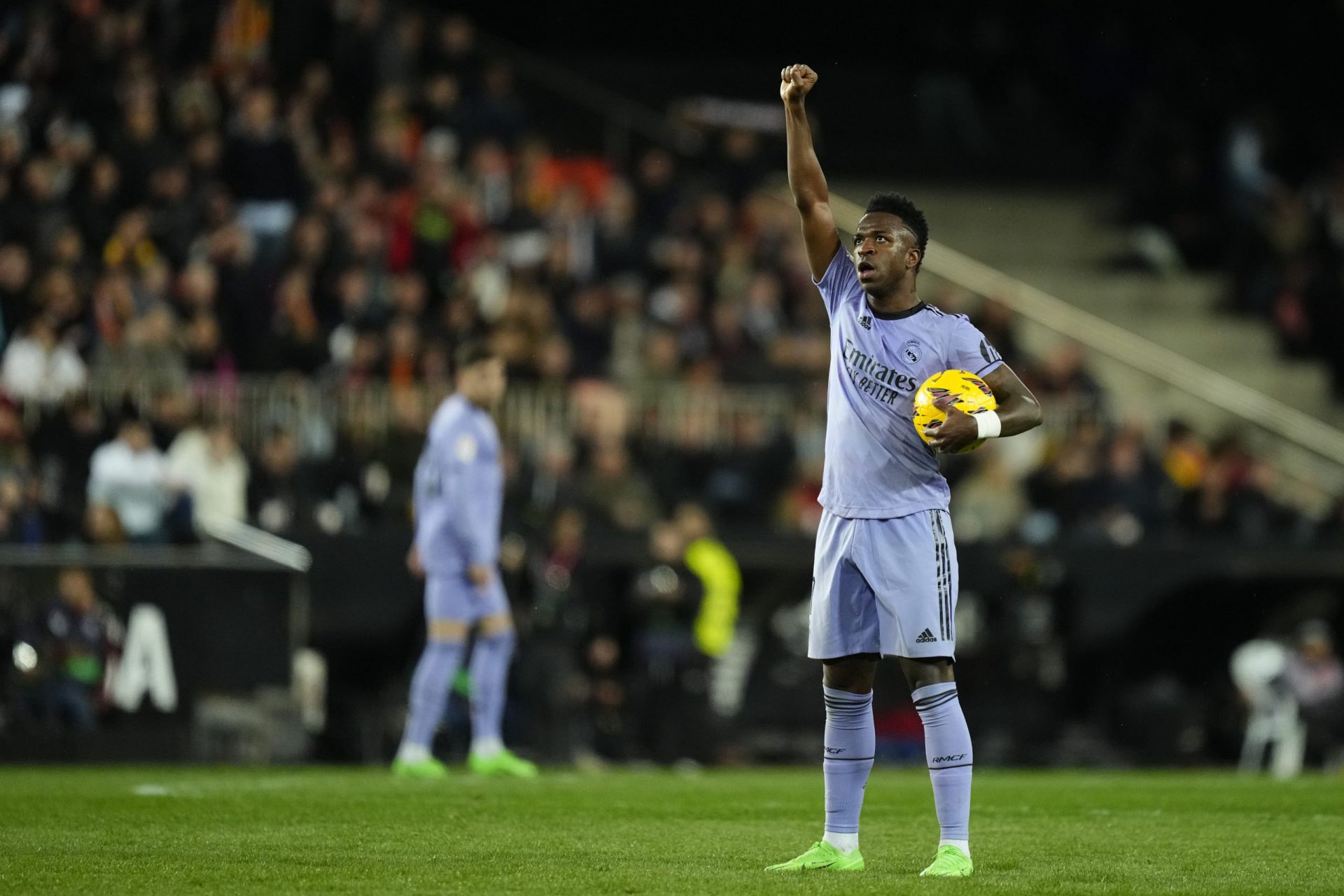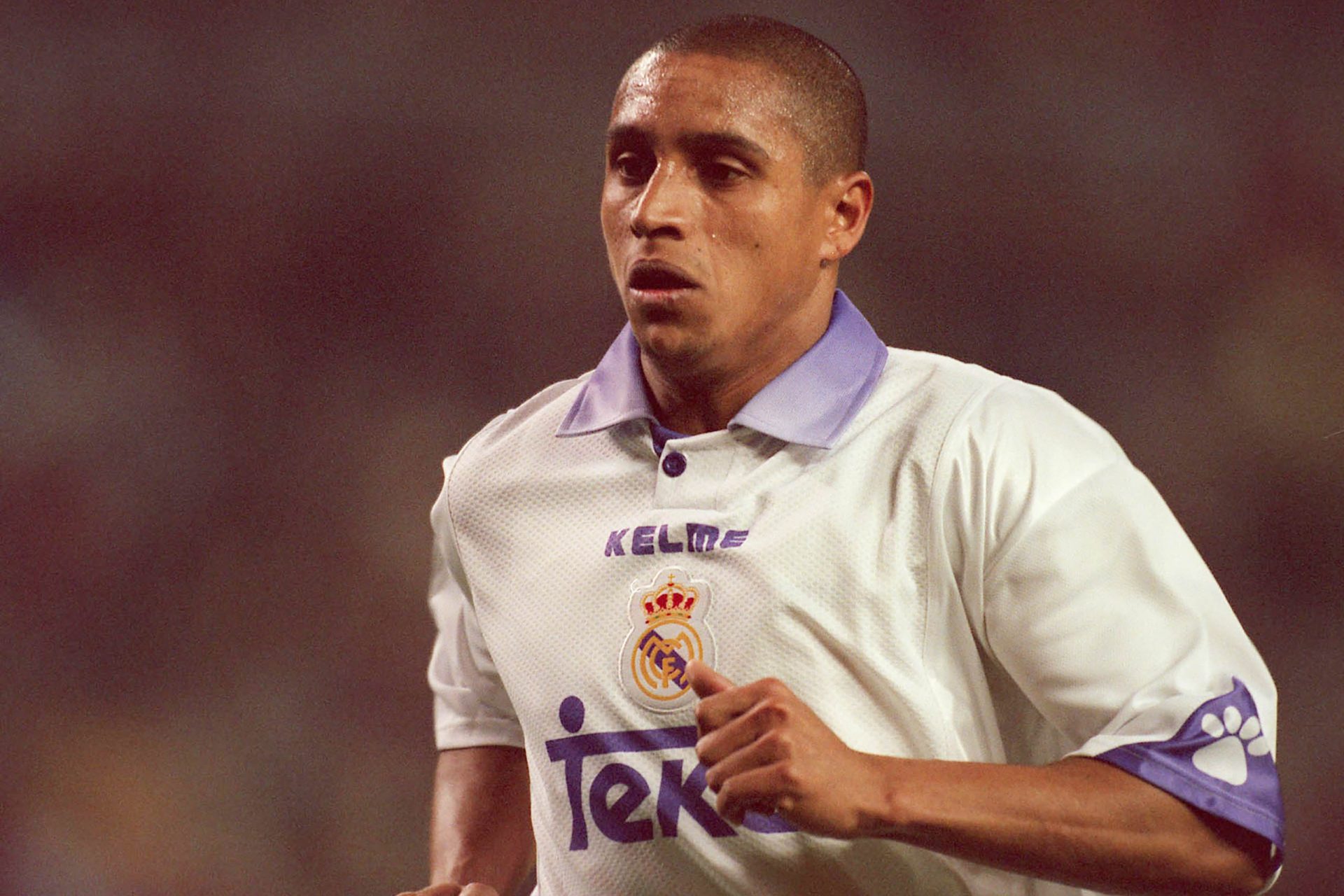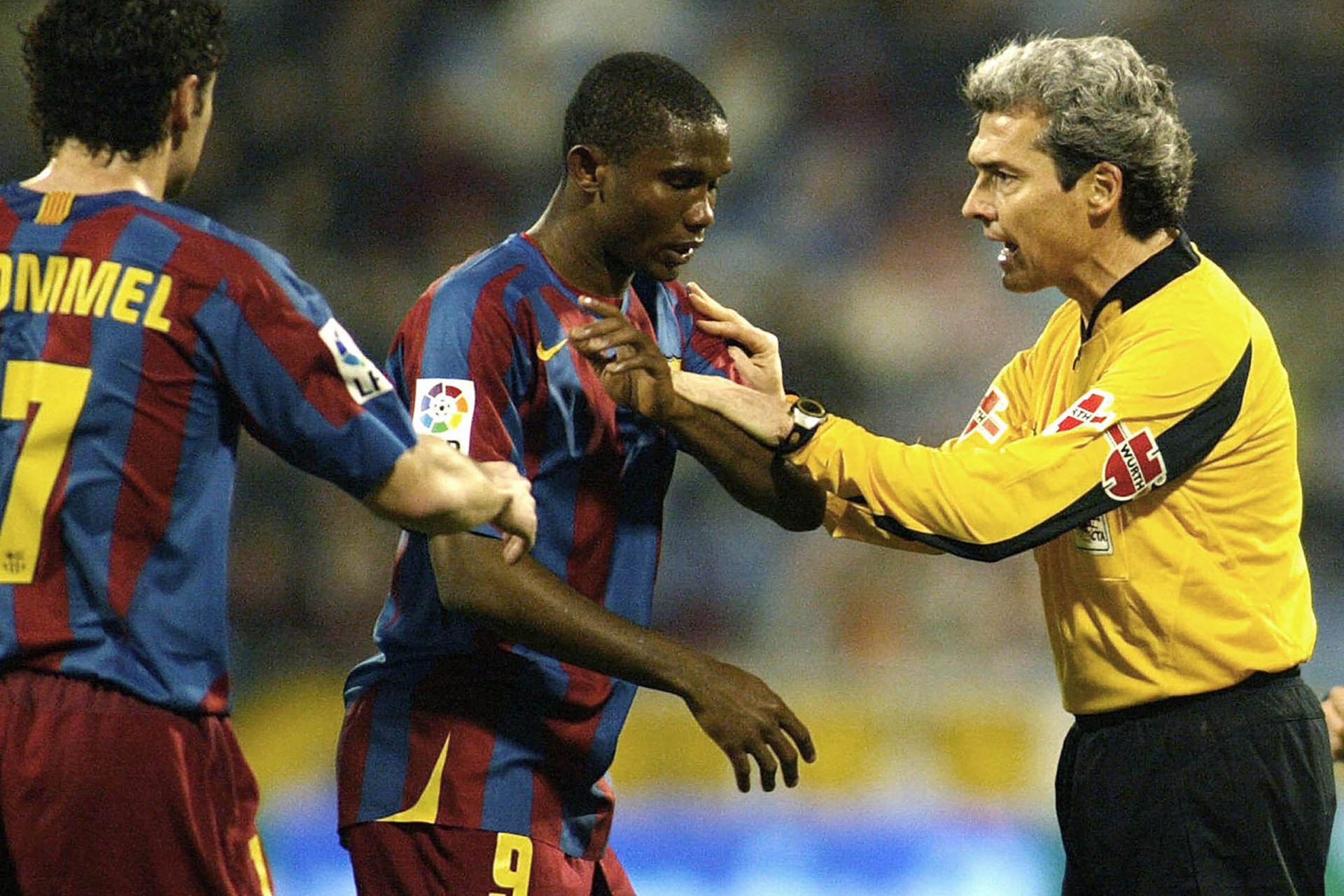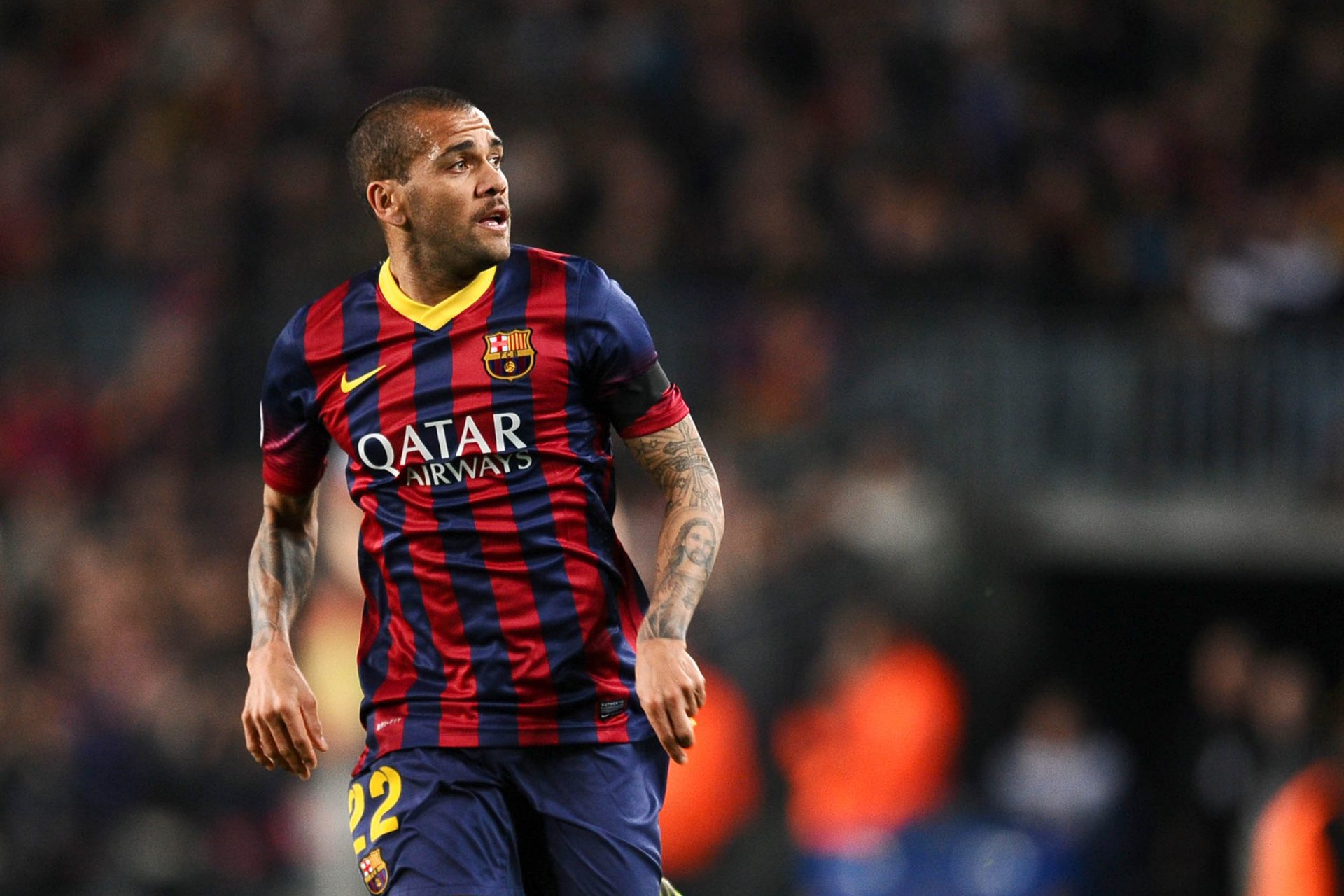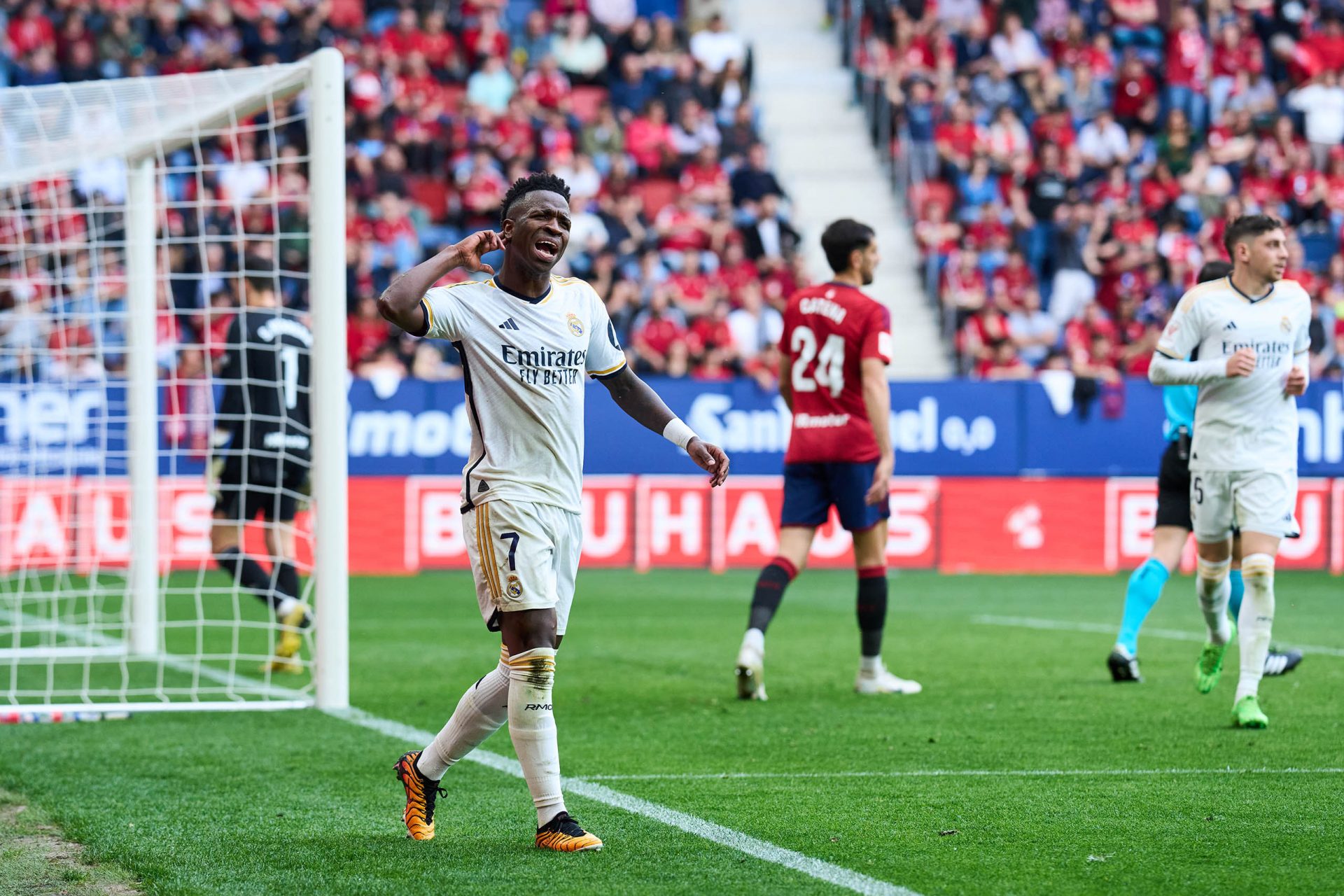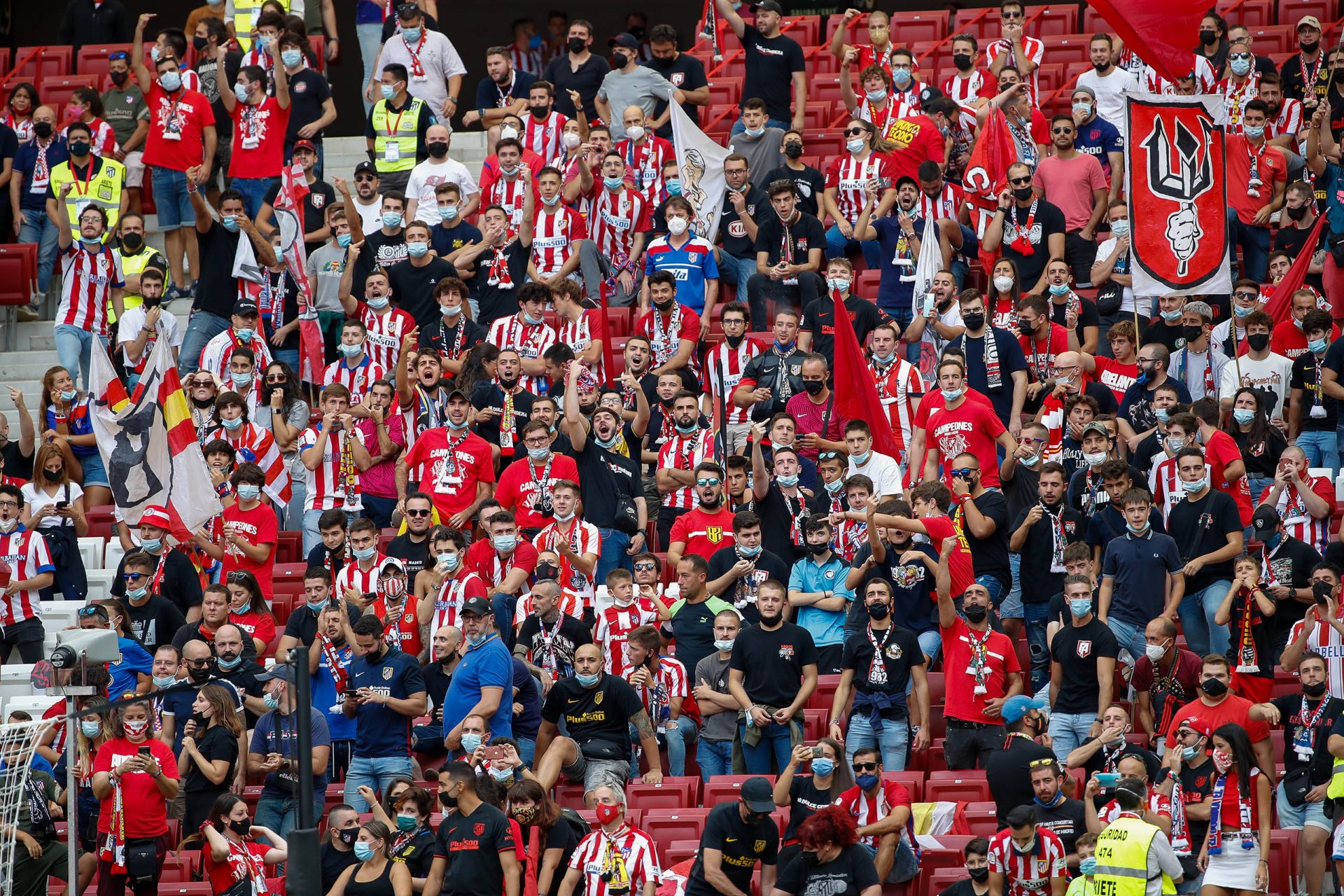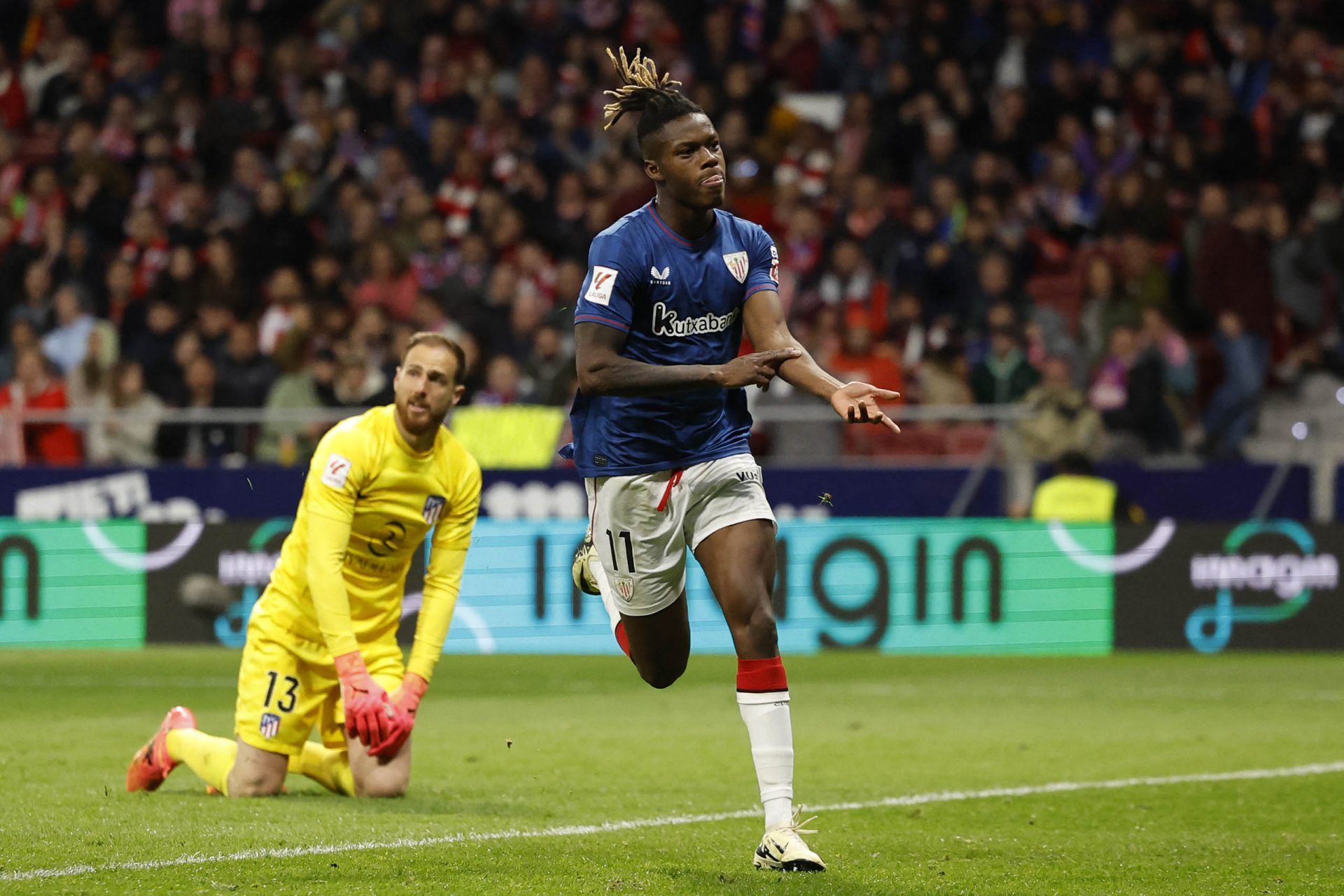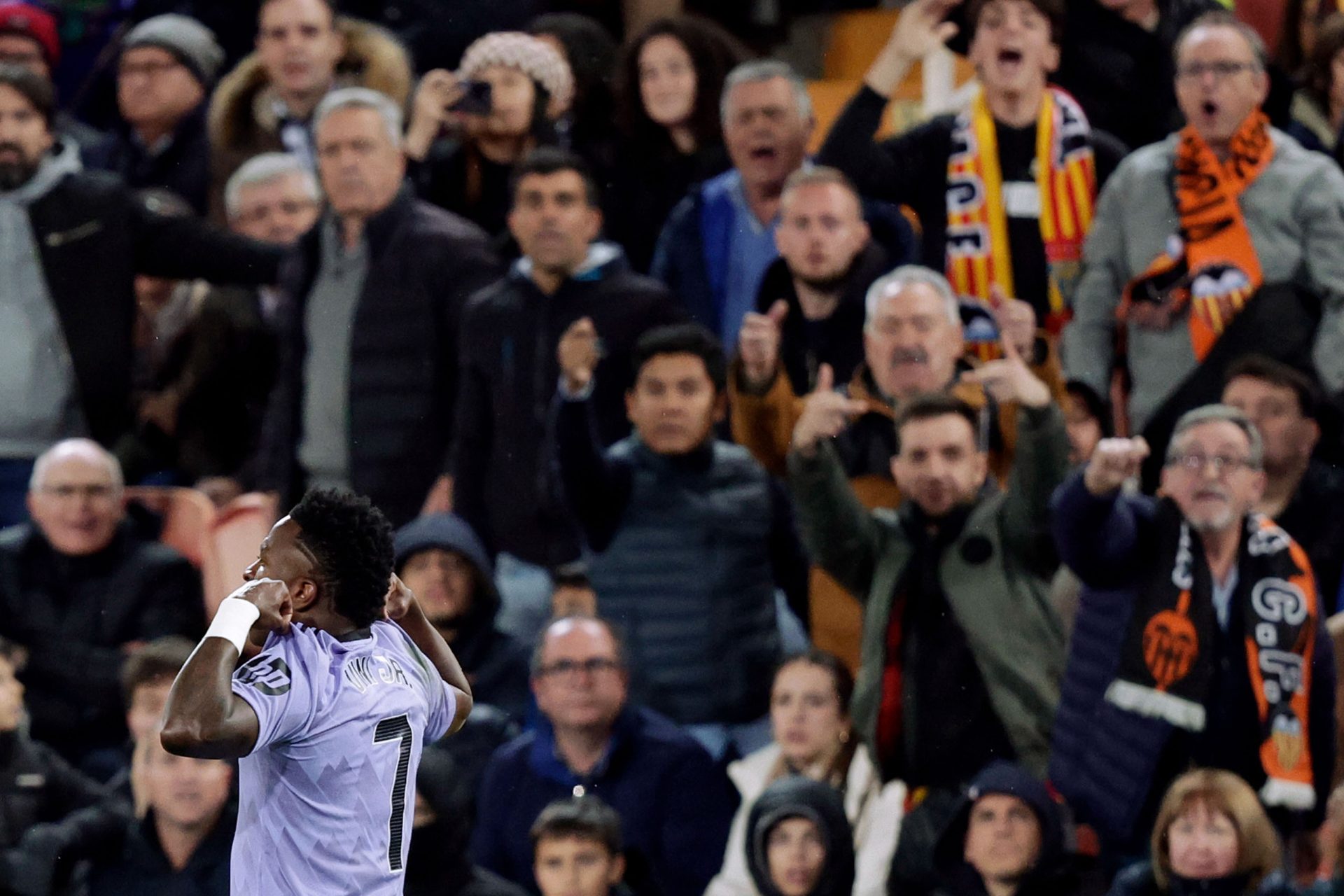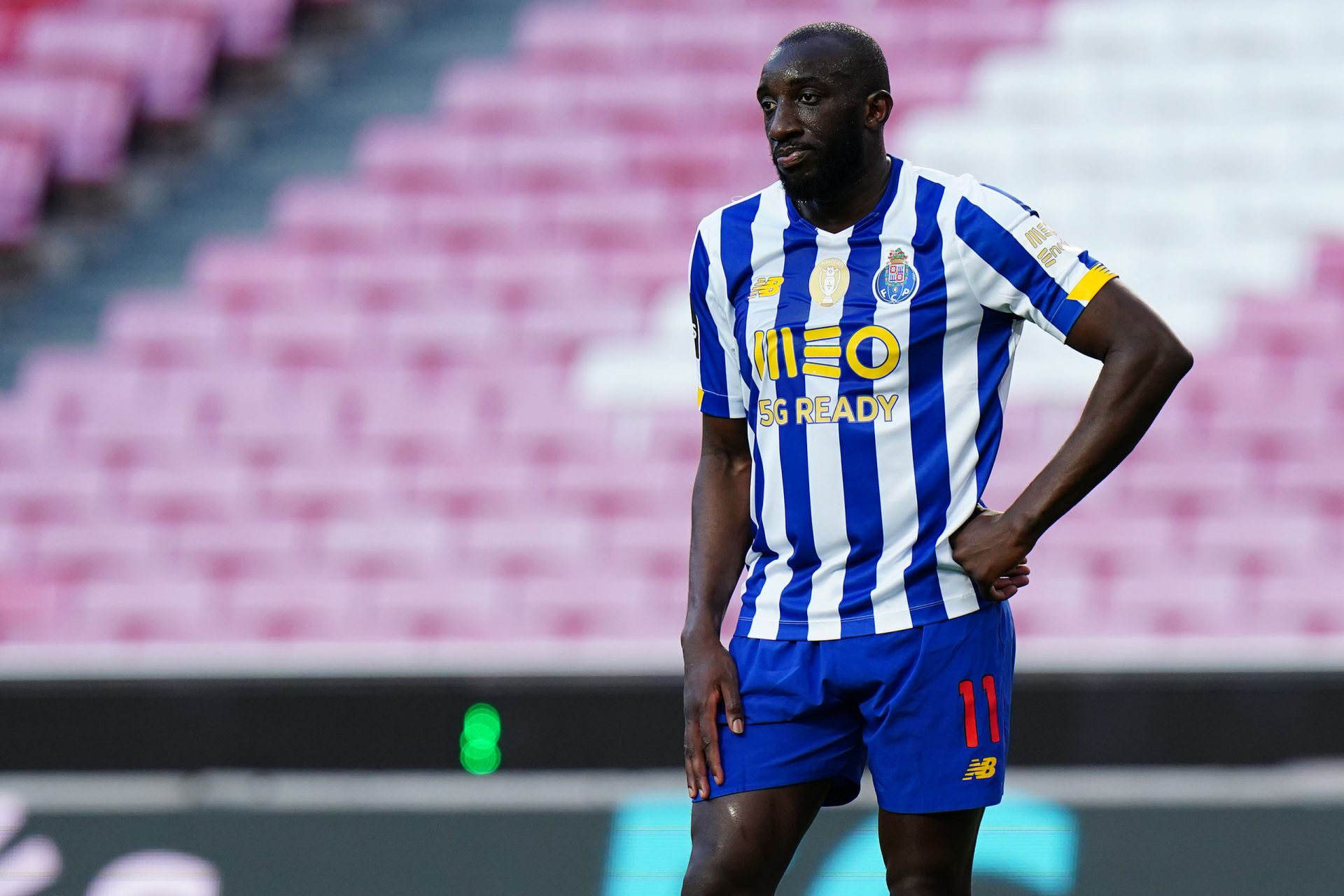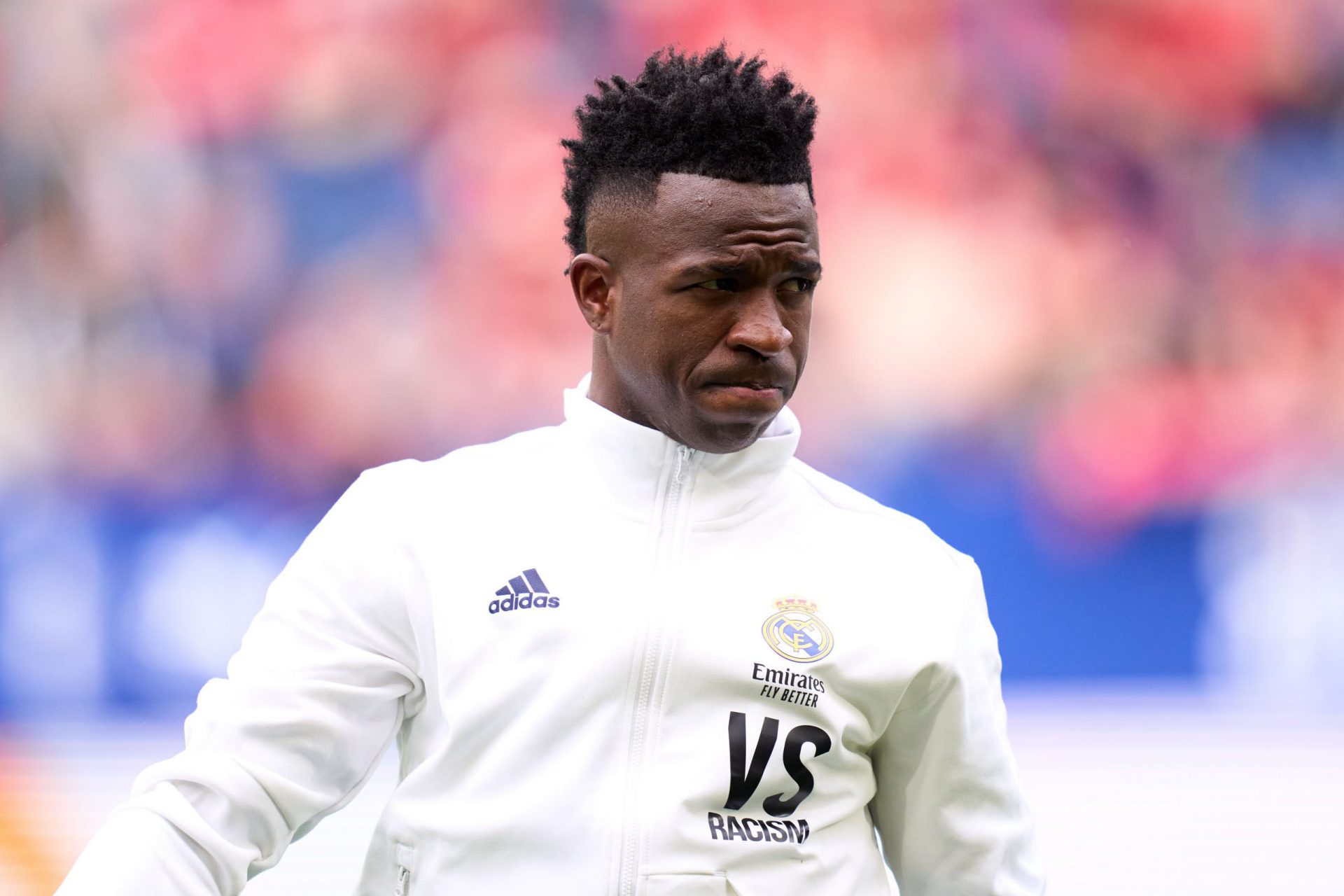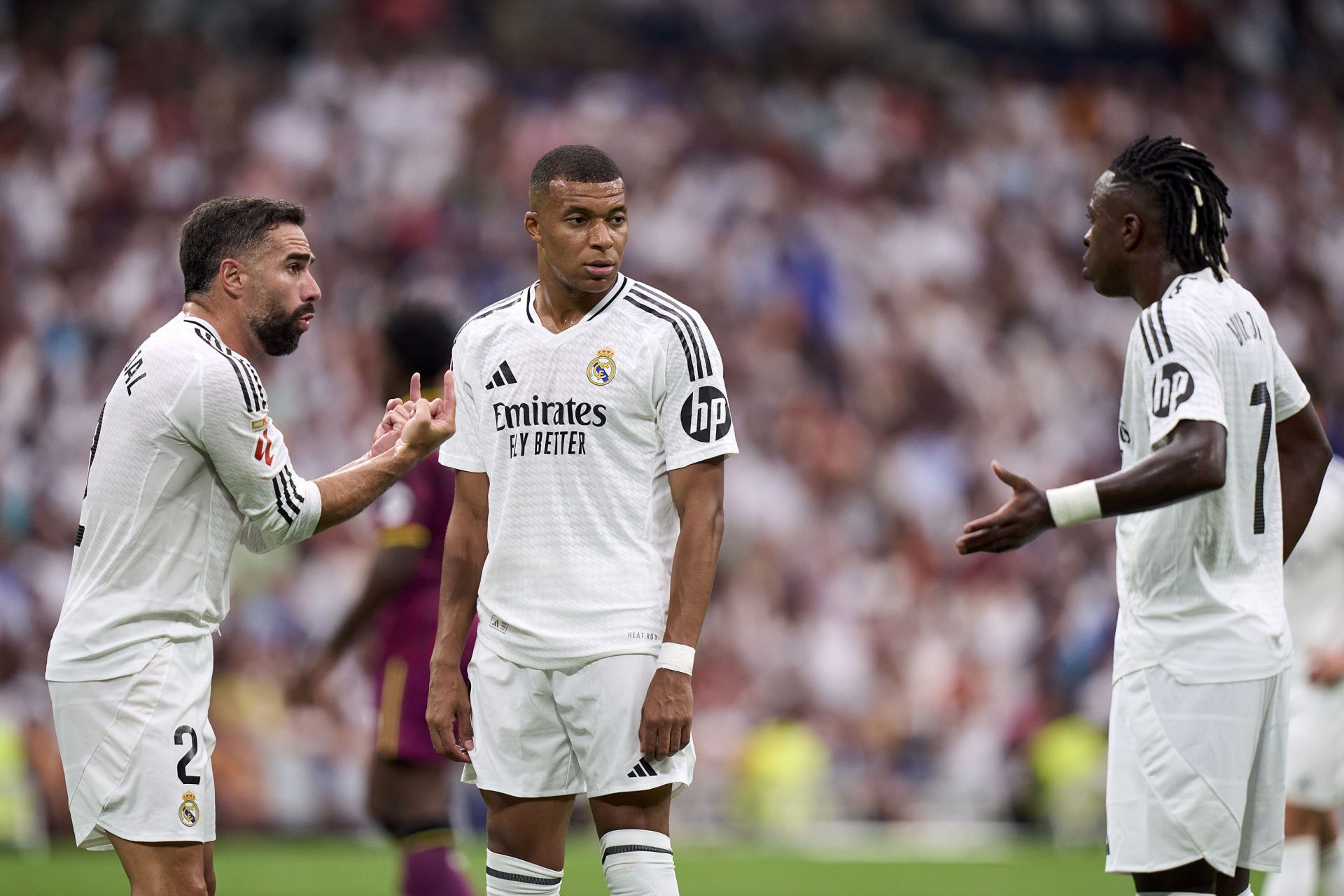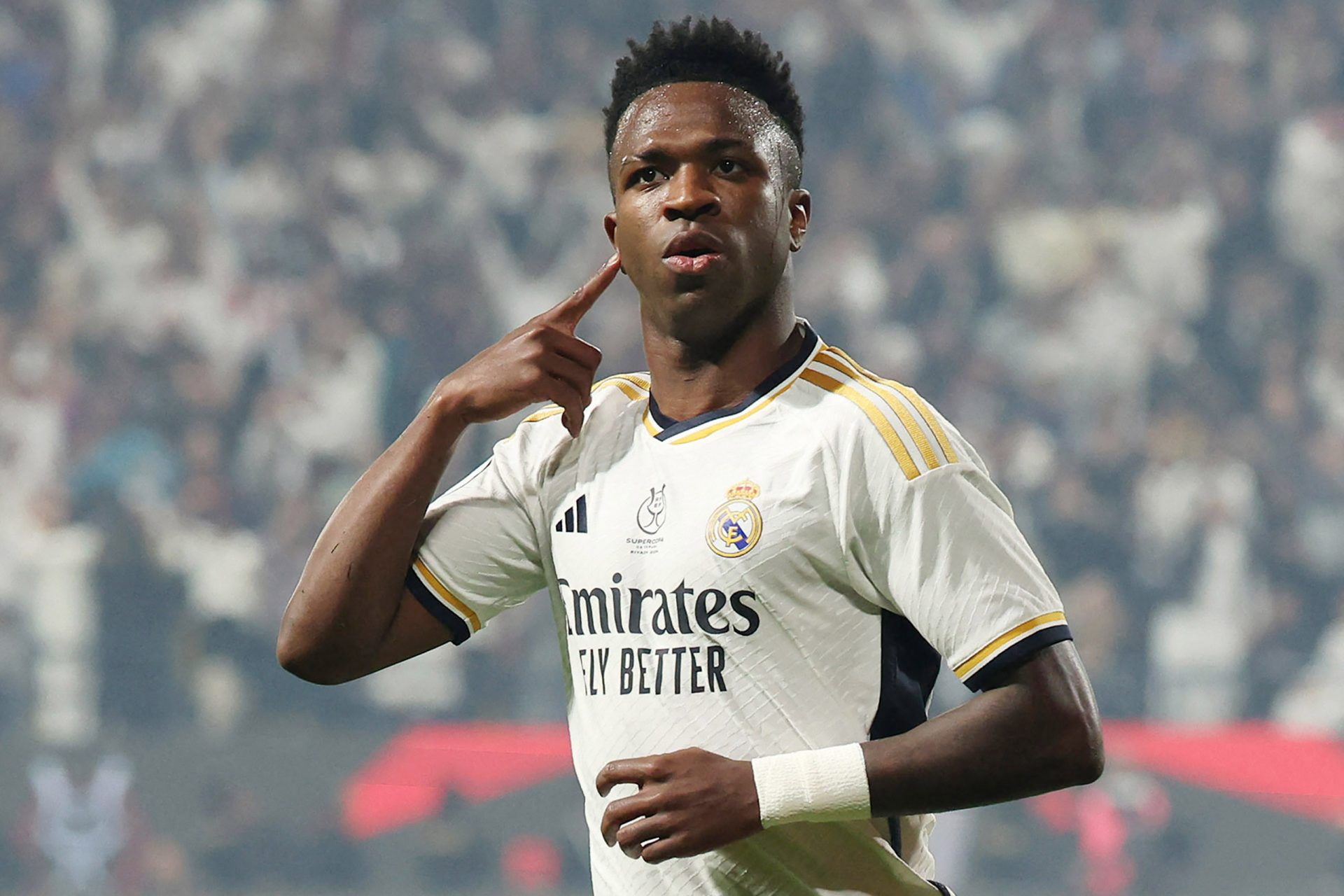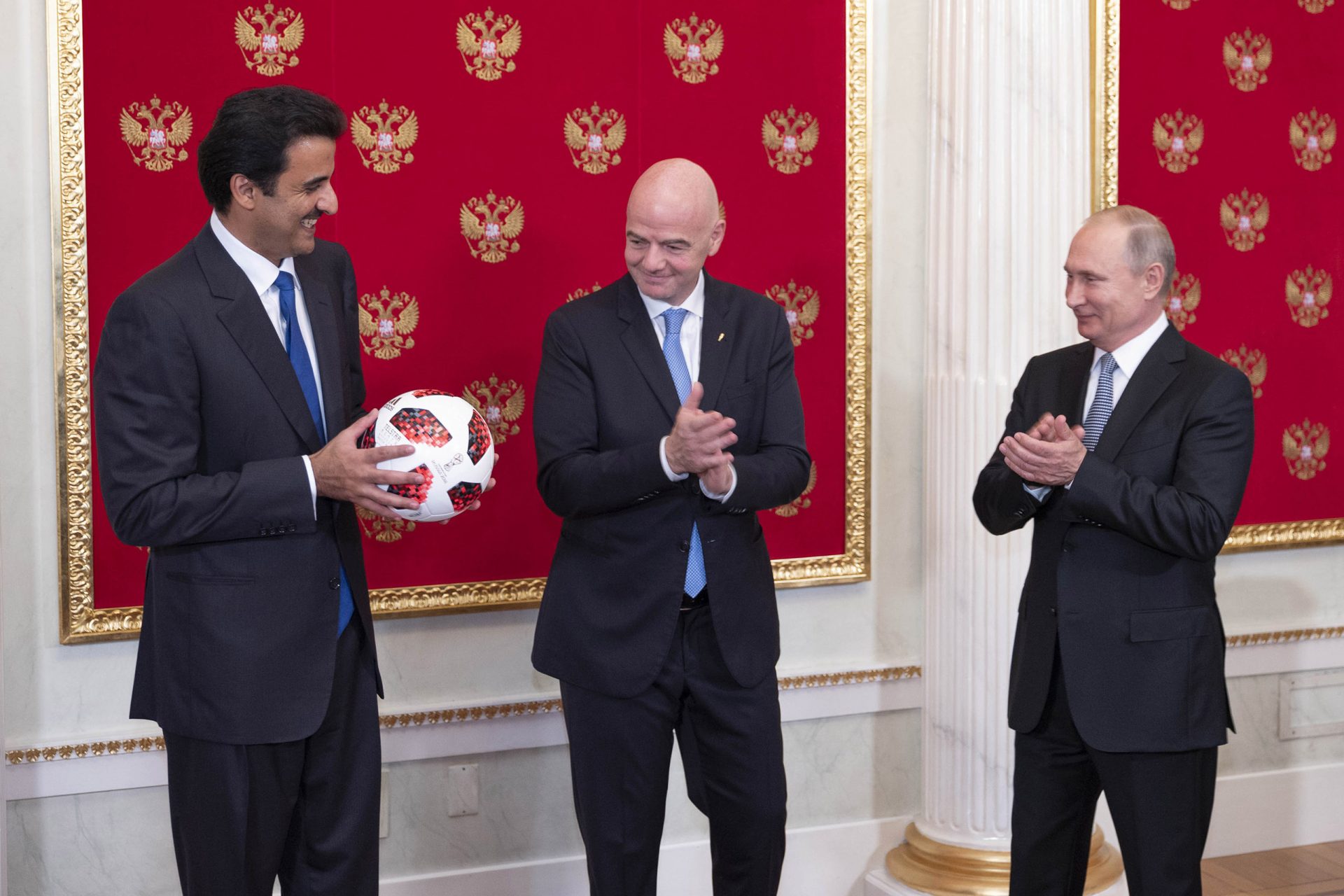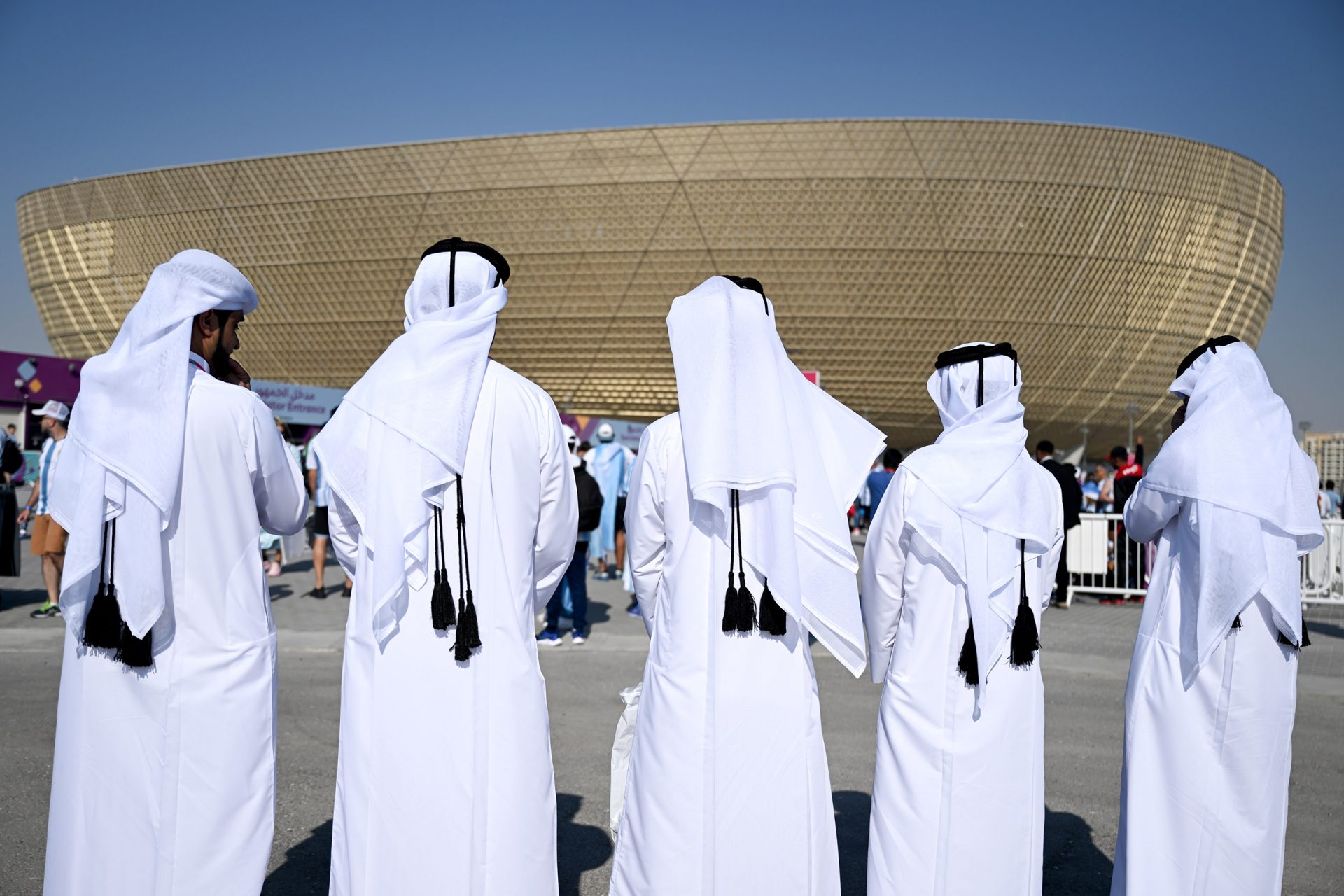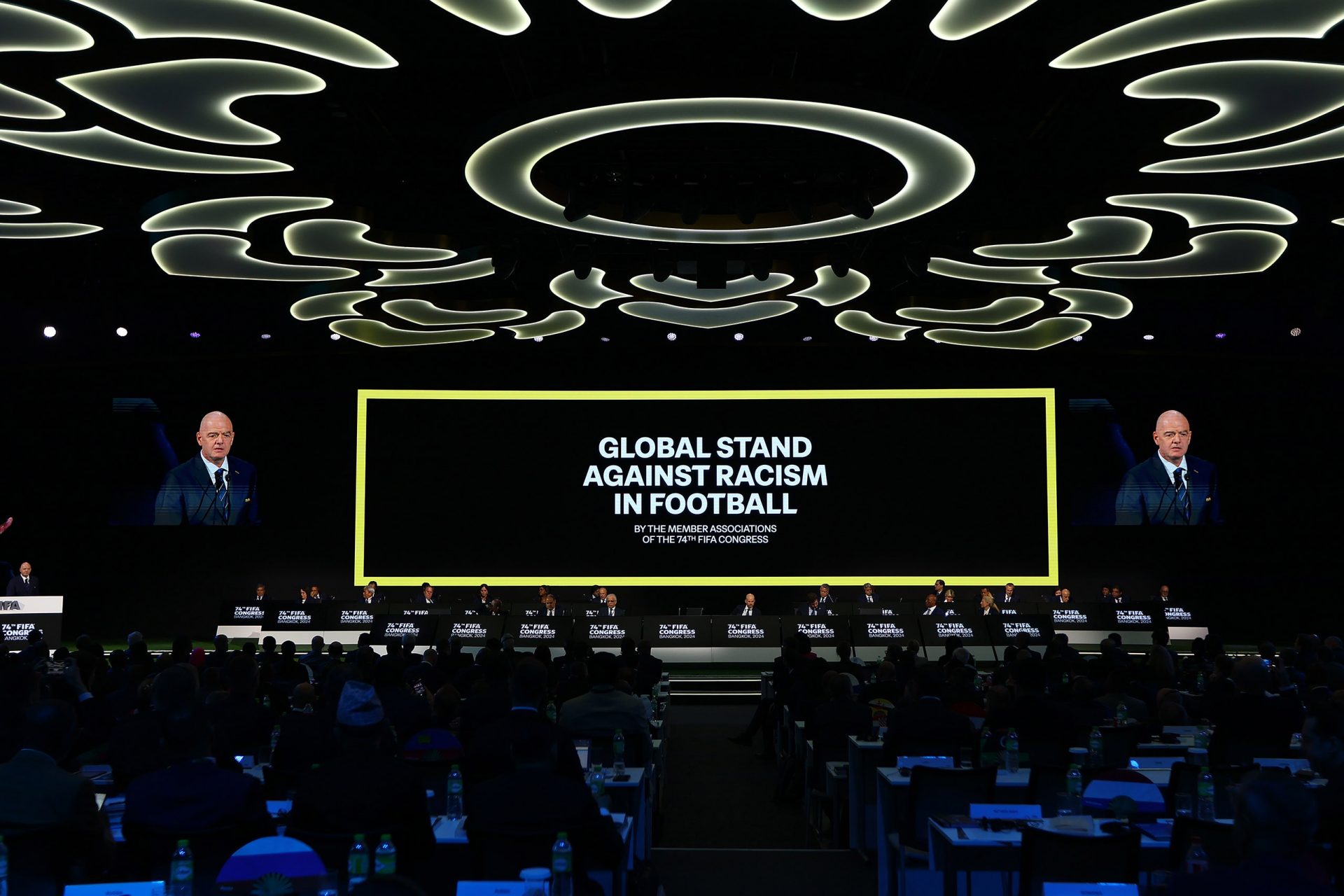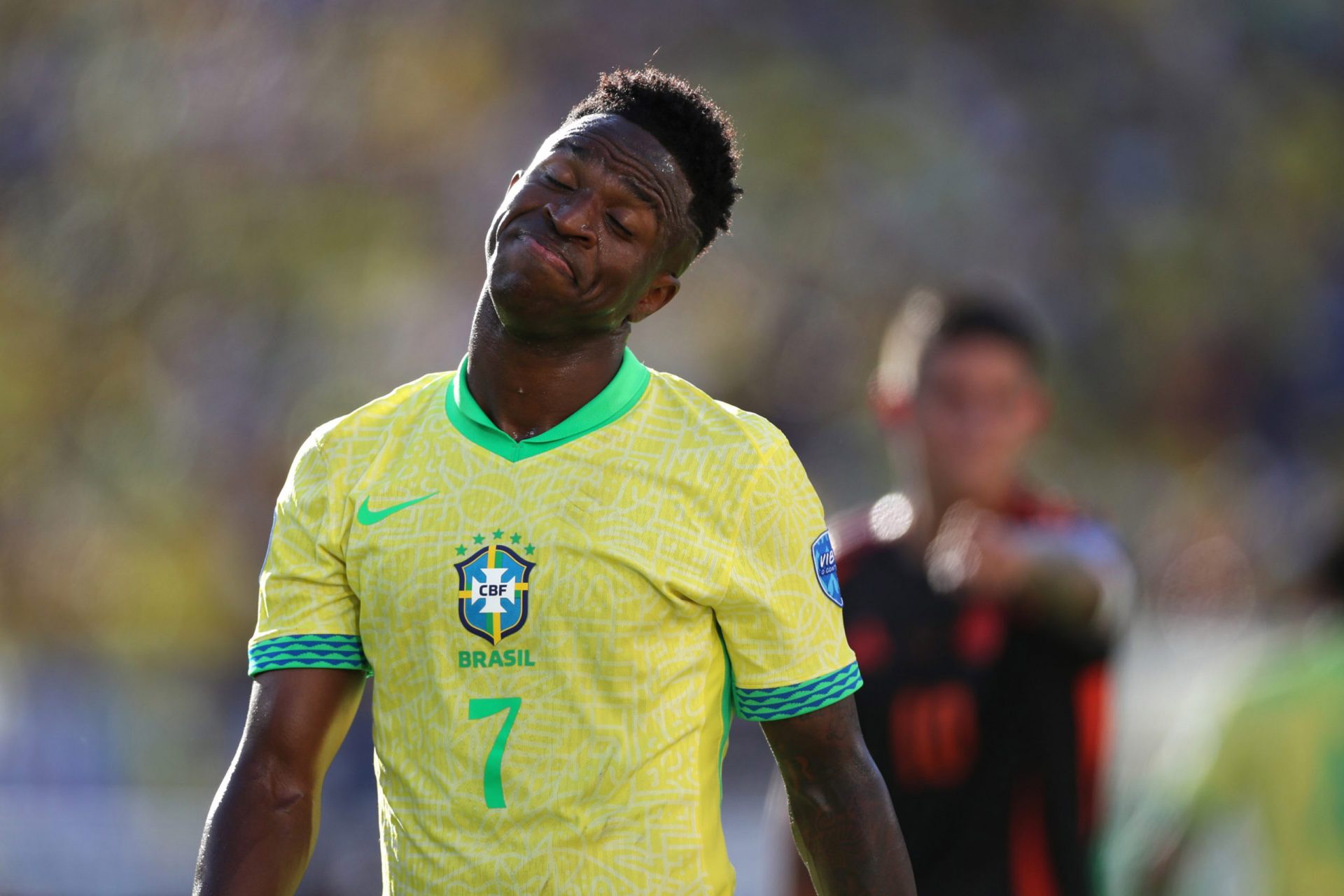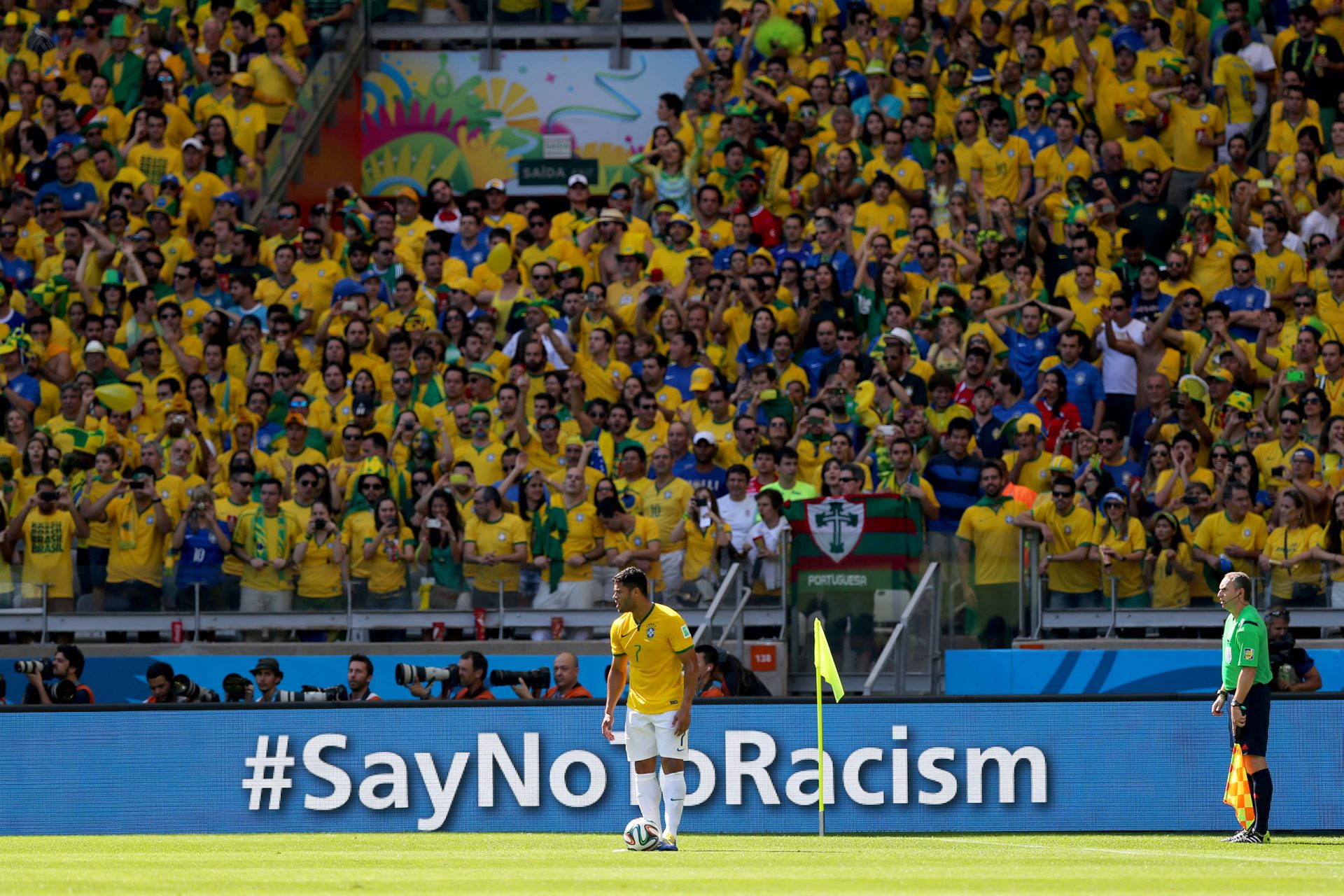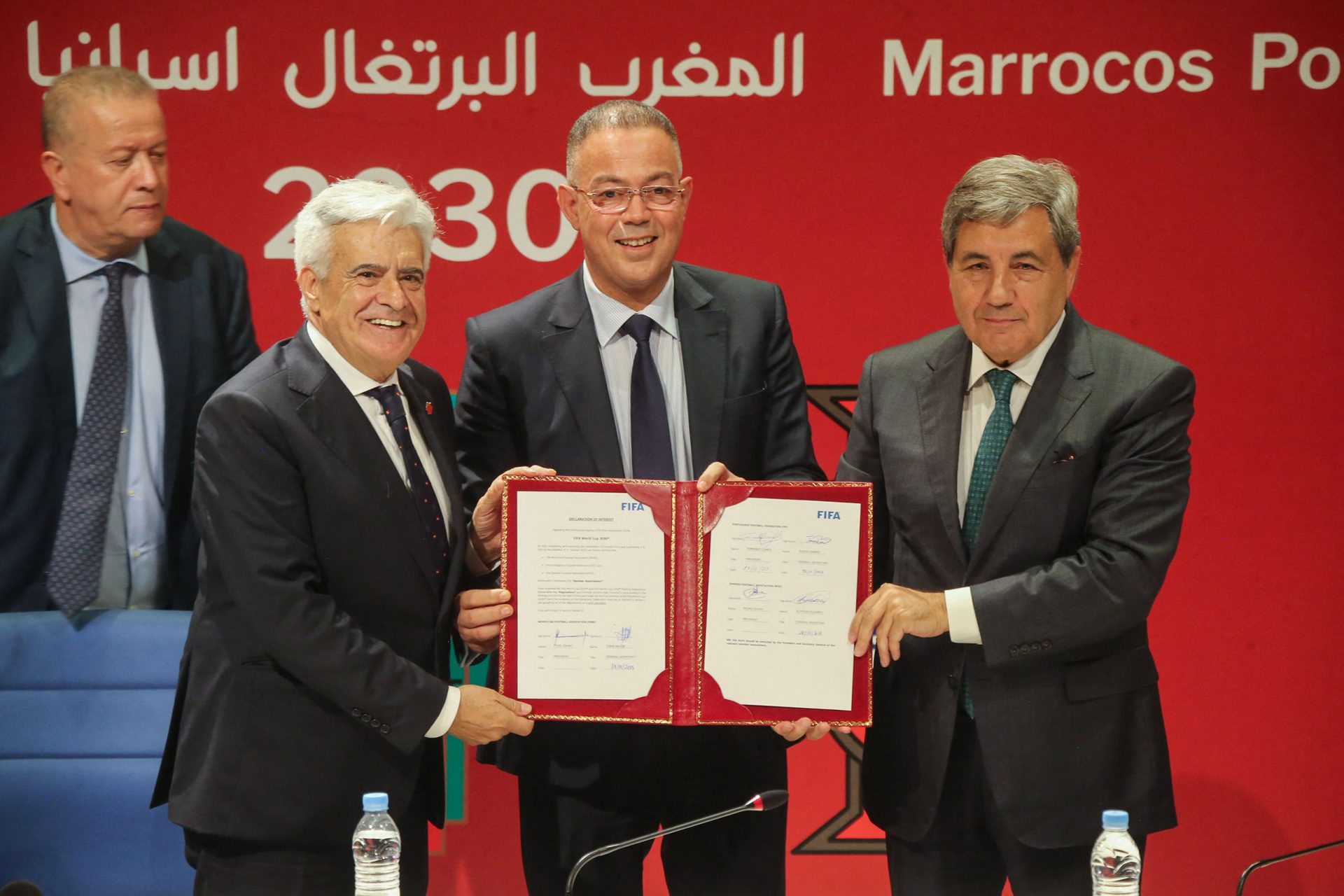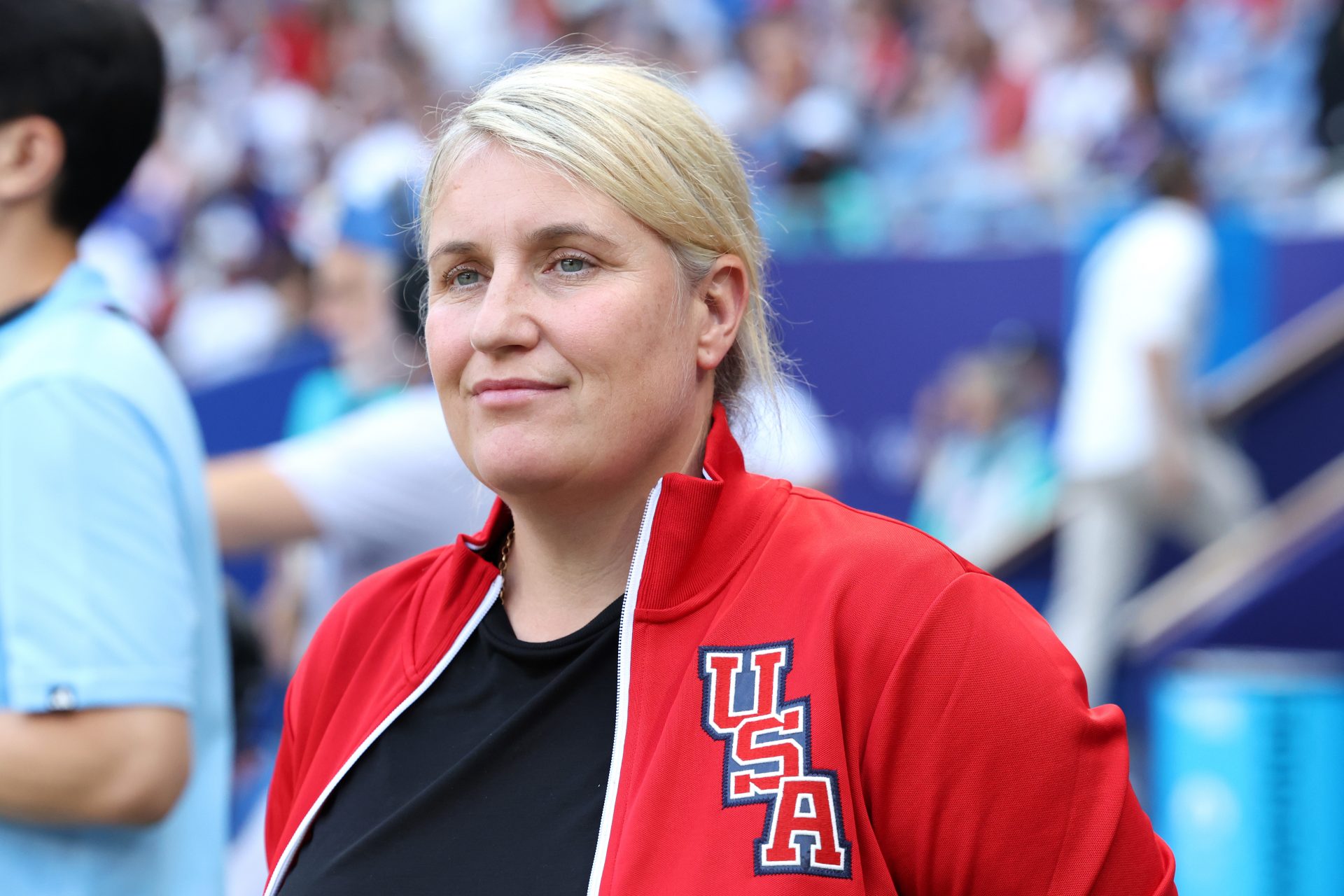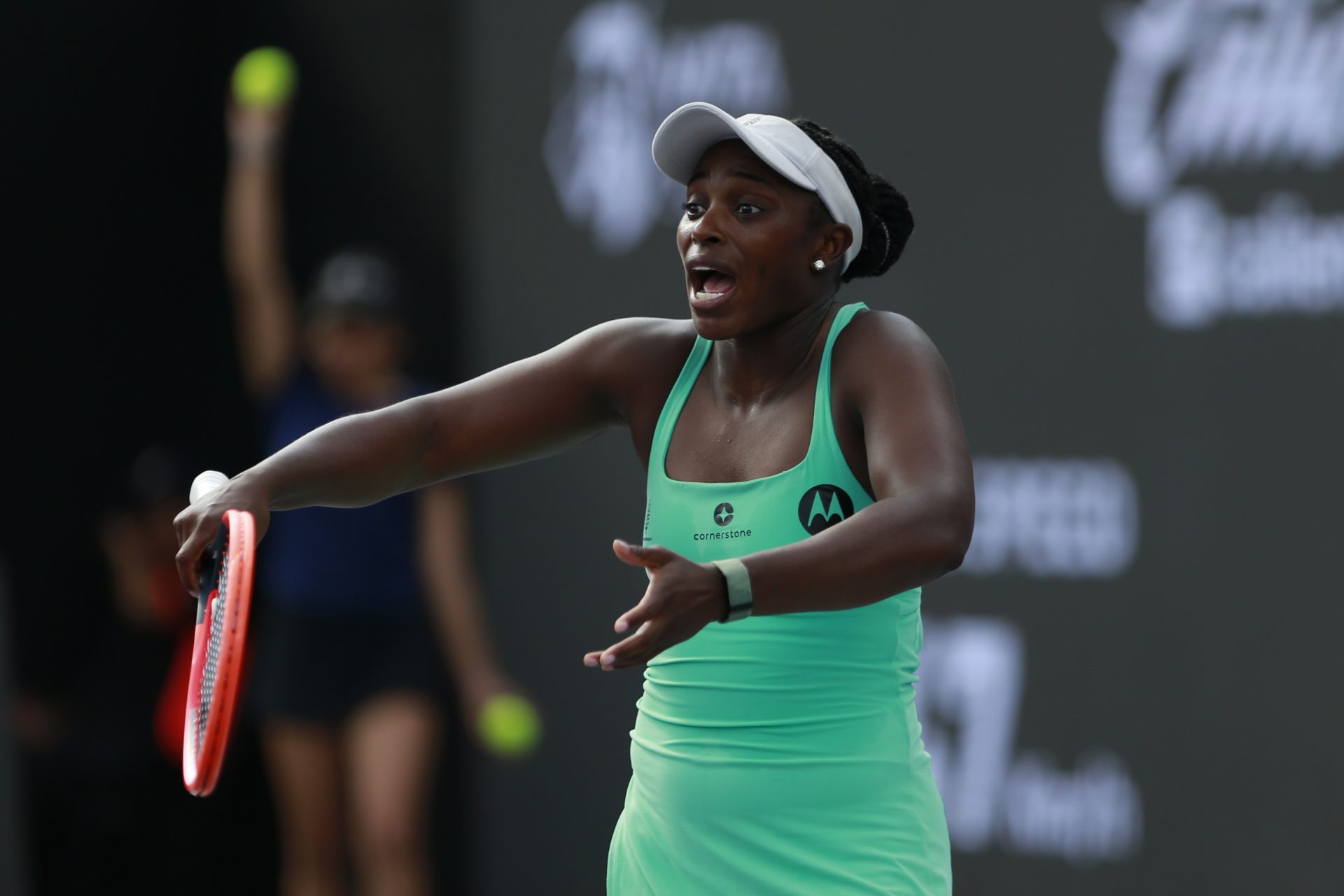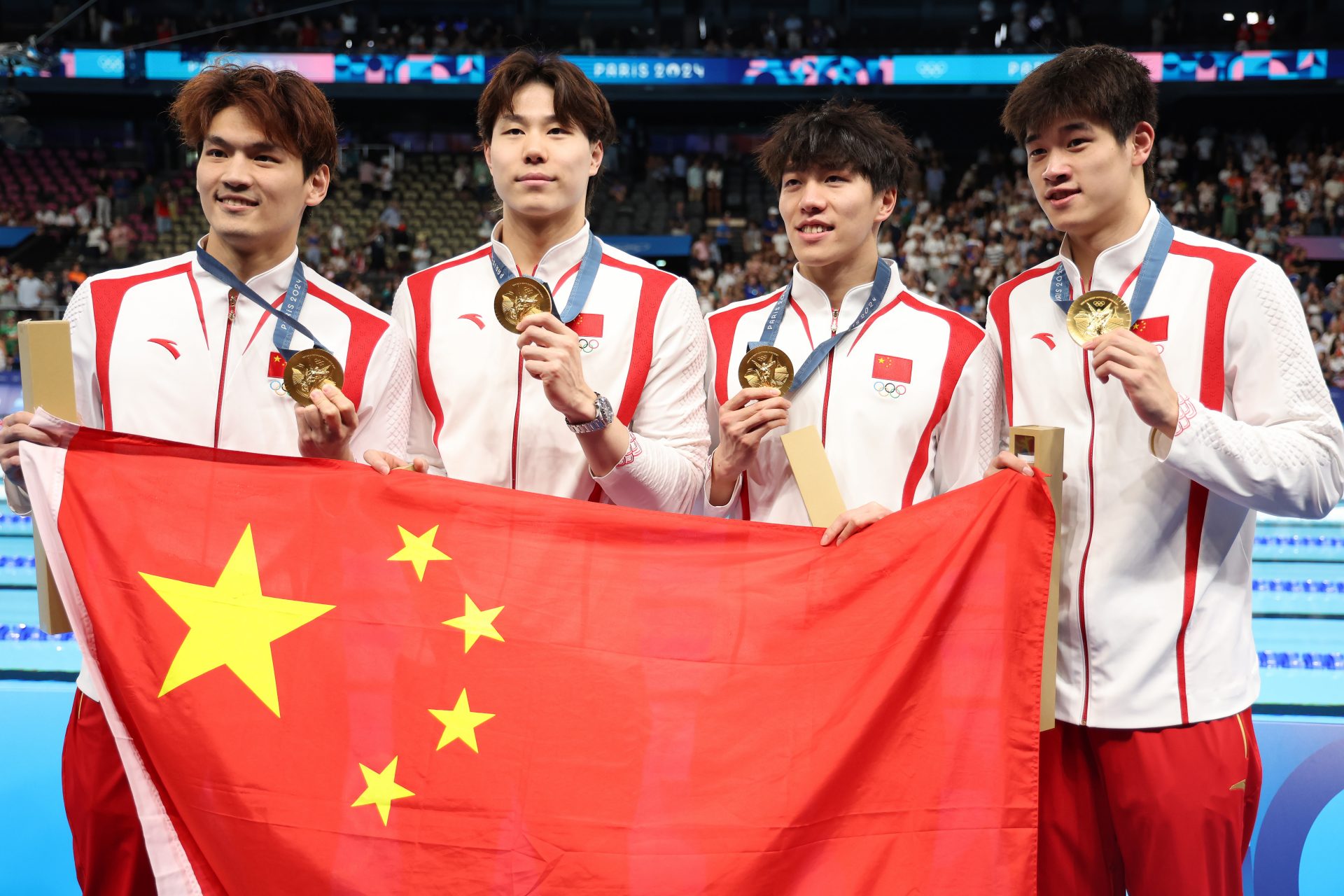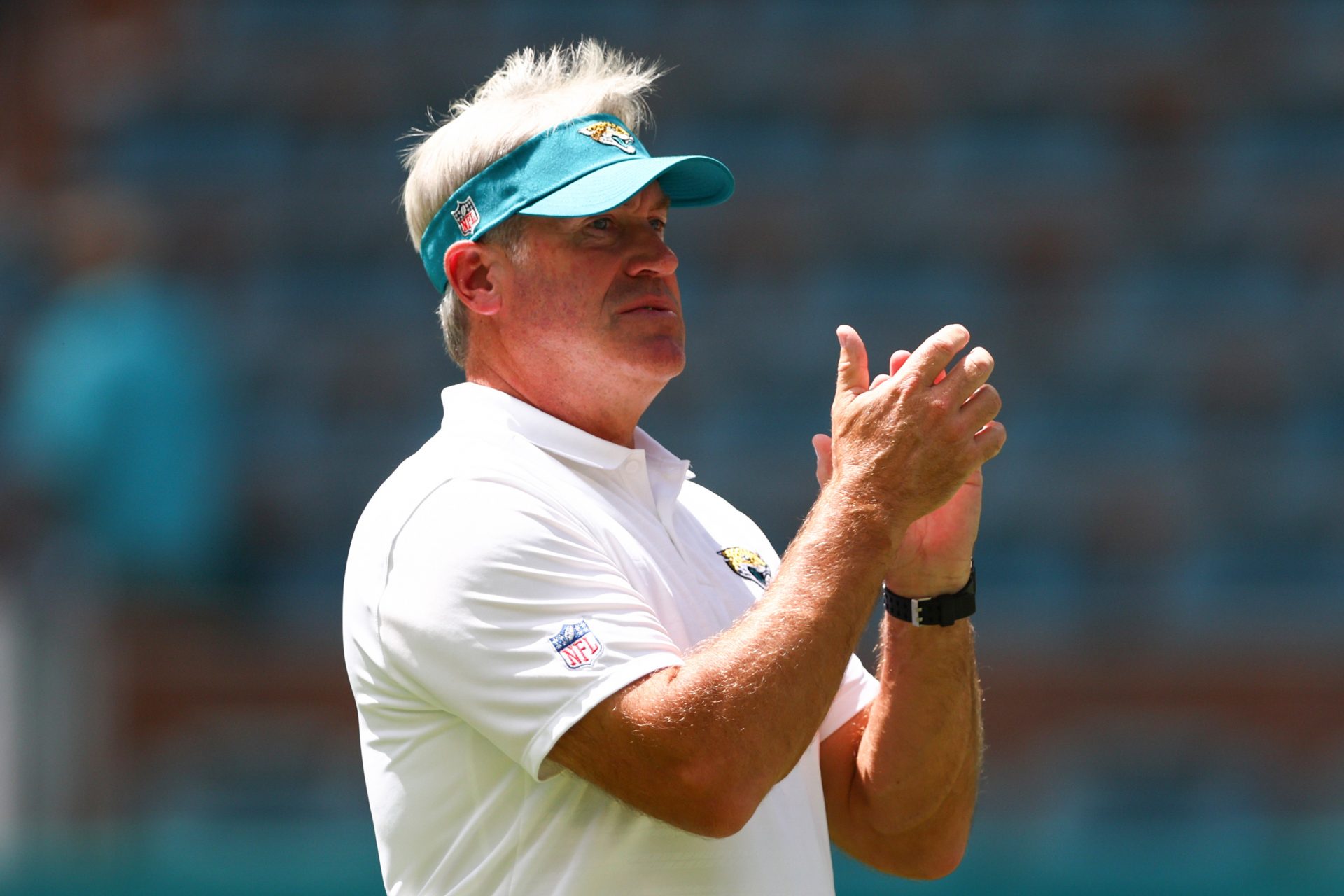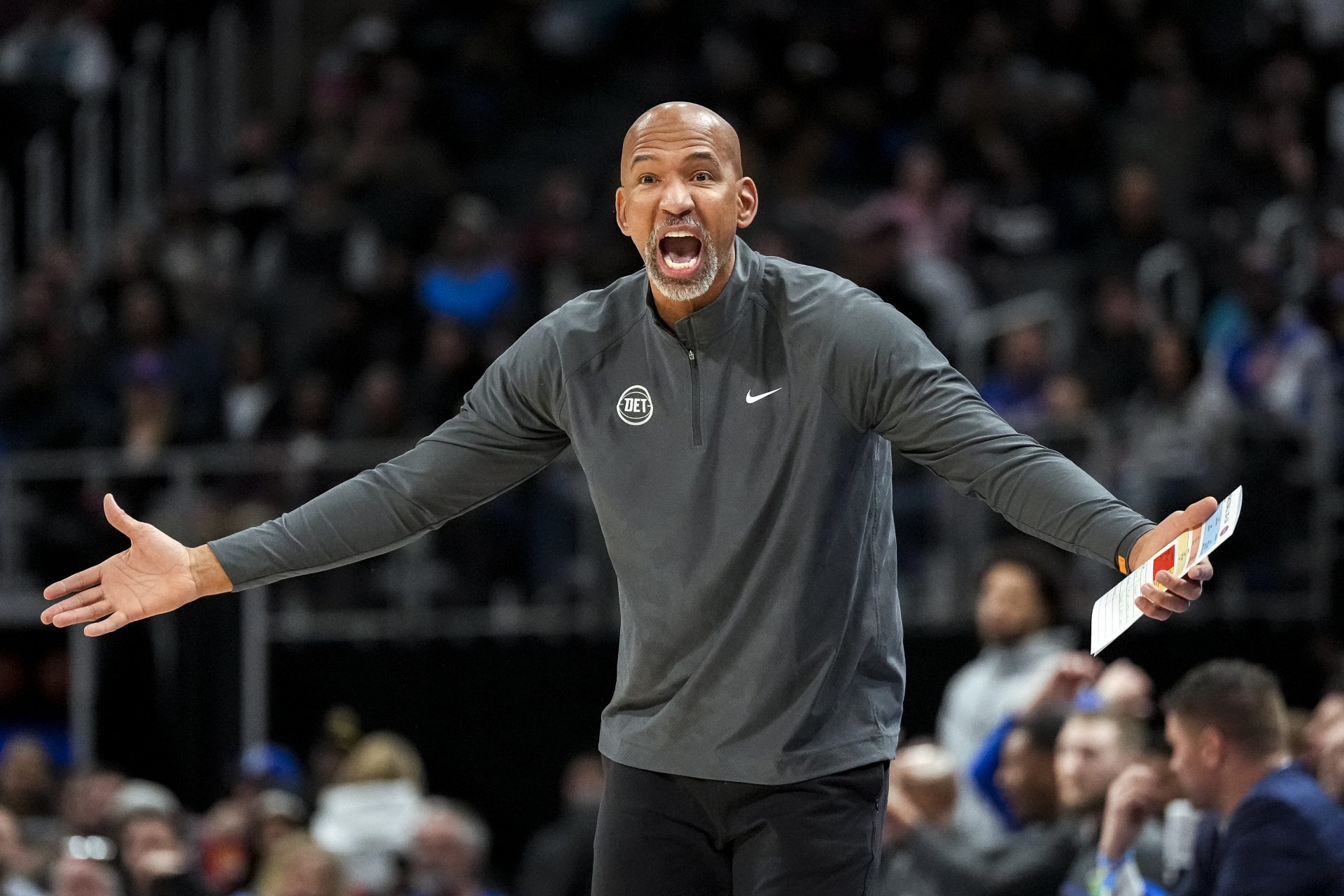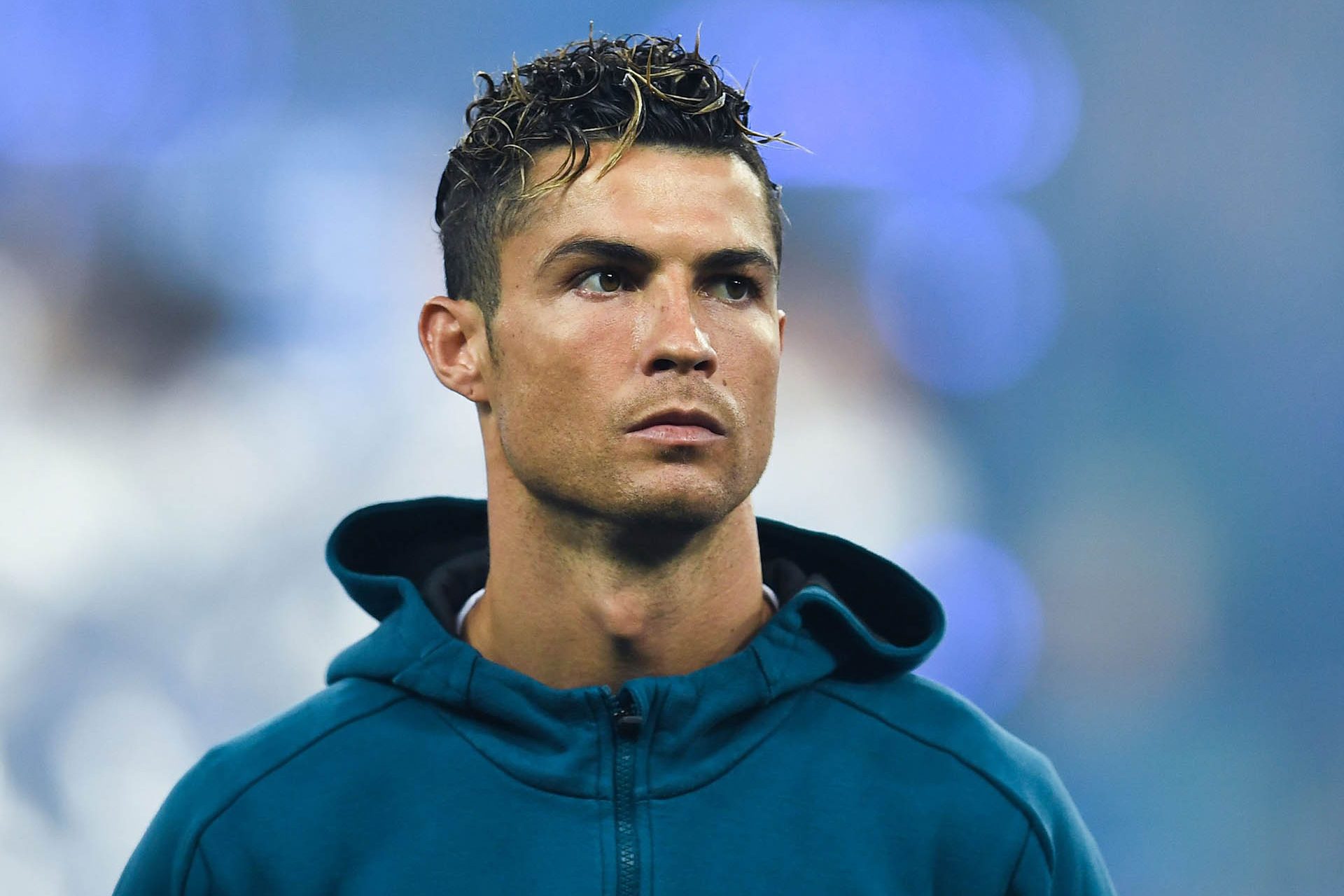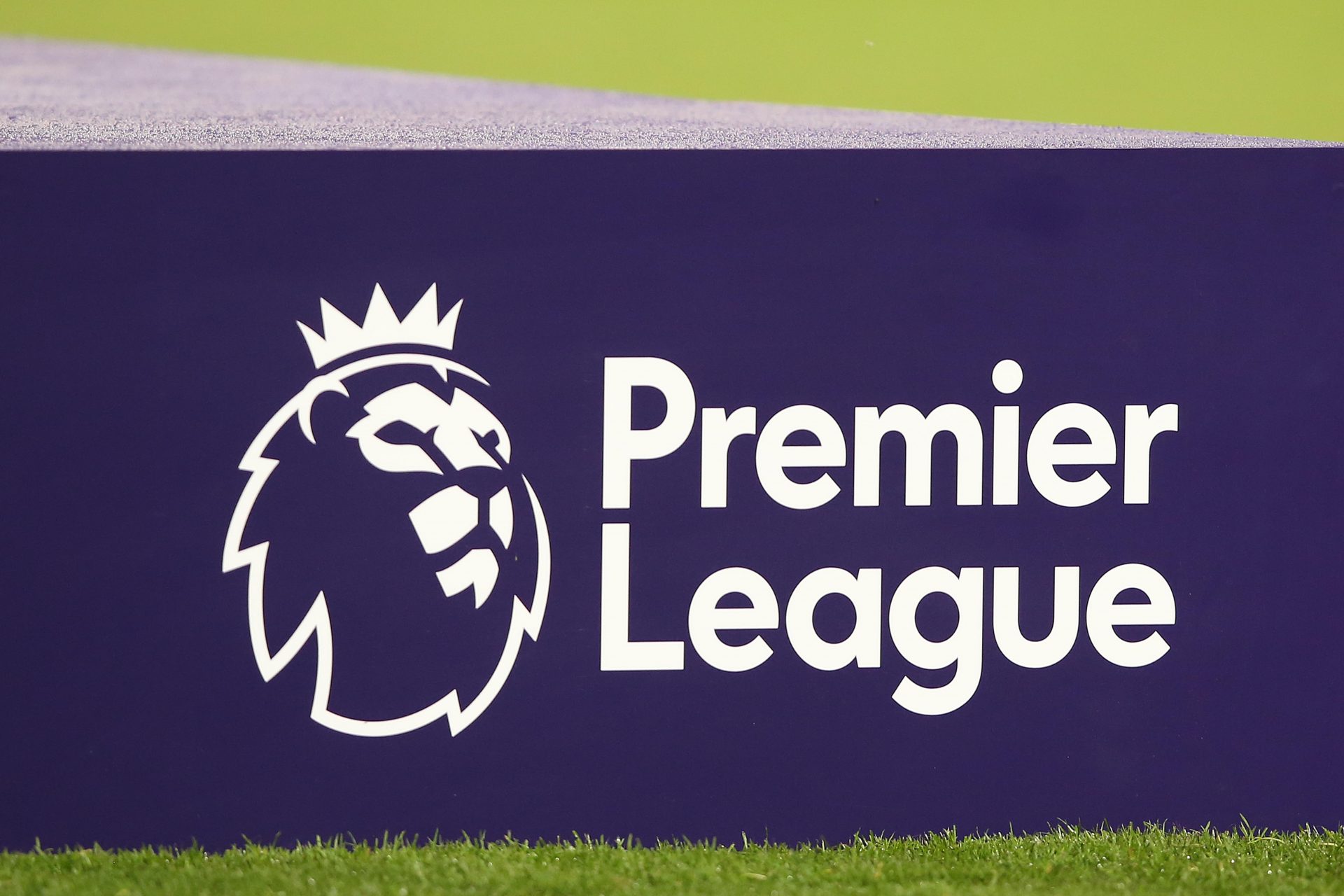Vini Jr. claims Spain is a racist country: Risk of losing the 2030 World Cup?
Once again, Vinicius Jr. is in the eye of the hurricane following his controversial statements about Spain being a 'racist country', raising questions regarding its 2030 World Cup alongside Portugal and Morocco. Both fans and pundits are constantly debating whether Vini Jr. is right to make such statements or whether he should apologise.
"We have a lot of room for change between now and 2030. I hope that Spain can change and understand how serious it is to insult someone because of the colour of their skin. Because if things don't change by 2030, I think the World Cup will have to change location," the Real Madrid striker said in an interview on CNN.
Vinicius, who has been waving the flag against racism for some time as a La Liga player and as a direct victim of racist insults in several of the Spanish stadiums where he has played, added that "if the players do not feel comfortable and do not feel confident playing in a country where they experience racism, it is very complicated".
Want to see more like this? Follow us here for daily sports news, profiles and analysis!
But is Spain really racist, as the Real Madrid player claims? Or is it more racist than other countries that have previously hosted a World Cup? Let's have a look.
In addition to the racist episodes that have targeted Vinicius, there have been many other incidents in Spanish stadiums involving other footballers. In the 1990s, there are cases such as those of Wilfred Agbonavbare or Roberto Carlos, who were heckled by rival fans, or that of 'Tren' Valencia, who was insulted by his own president, Jesús Gil.
From the first decade of the 2000s, we particularly remember cases such as Darío Silva, who attacked a rival fan for telling him "all black people should be dead"; Samuel Eto'o, who wanted to leave the field during a match against Real Zaragoza; Carlos Kameni, who was heckled in the same stadium; or Ronaldo Nazario, who received racist insults in Málaga.
One of the most memorable incidents of racism in football occurred at El Madrigal stadium, where a banana was thrown at Dani Alves during a match. The Brazilian player was frequently subjected to racial slurs, including being called a "monkey" in various stadiums, responded by peeling the banana and eating it mid-corner.
There have been many such cases in Spanish football, although in this case, there has been a tendency to generalize, something that Vinicius himself softened by recalling that "there are many people in Spain, or even the majority, who are not racist, but there is a small group that ends up affecting the image of a country".
Asked whether Spain is racist, Amnesty International gave two points of view in an interview with the Infobae website. On the one hand, they point out, "some people ask this question with surprise, which is a serious symptom of how internalized and normalized many racist and xenophobic attitudes and behaviors are".
On the other hand, the NGO continues, "other people directly deny it, considering that the insults received by Vinicius are nothing more than an anecdote involving four radicals, and that, therefore, it should remain as such".
Want to see more like this? Follow us here for daily sports news, profiles and analysis!
From Blvck Pvper, a digital media outlet that actively fights against racial discrimination in Spain, its coordinator, Guillermo Akapo Bisoko, took this controversy a step further, stating in Infobae that "racism goes beyond the mere question of condemning a person for uttering racist chants to a football player".
Akapo Bisoko denounces that the social structure in Spain is in itself racist and explains that "beyond football and sport, something is failing when the latest data indicate the upward trend of racist and xenophobic regulations, practices and behaviour in recent years, and we still have no clear commitment to fight racism and discrimination".
His complaint was also directed at the other host countries, Portugal and Morocco, where he also denounced similar cases such as those of Moussa Marega and Chancel Mbemba, respectively, while recalling that "the problem of racism in Spanish sport is that it has been normalized to such a level that it has even normalized the silence of the athlete".
And although since 2007 the law in Spain has condemned issues such as racist insults inside and outside stadiums, Akapo Bisoko regretted that "the lack of will and action by the responsible institutions shows a limited effectiveness of the legal application", as reflected in the fact that "matches are hardly suspended, stands are closed or stadiums are closed".
Want to see more like this? Follow us here for daily sports news, profiles and analysis!
Despite everything, Vinicius's words have caused many to come out and publically respond, as is the case of his teammate Dani Carvajal, who stated that "Spain is not a racist country"; or the Spanish-Brazilian Donato, who has said that "he should apologize for his words".
In this context, comparisons also arise. Is there more racism in Spain than in other countries? It is difficult to say that there is a single country in the world where there is no discrimination based on skin colour, and good examples of this are the last four venues that have hosted the World Cup or the two that are about to do so.
We are talking about South Africa, Brazil, Russia, Qatar, the United States, and Saudi Arabia, countries where discrimination and racism, according to Amnesty International, far exceeds that seen in Spain.
"Institutions such as FIFA claim that hosting the World Cup leaves a positive legacy for human rights in host countries. However, the reality is quite different," Amnesty International notes.
At its 74th Congress in May 2024, FIFA discussed the adoption of specific sanctions for cases of racism, such as the so-called 'automatic defeat' in the affected matches, as well as the possibility of it being a criminal offence. These are fundamental issues for a problem that goes much further and on which they have a lot of work to do.
Even Vinicius's own home country, Brazil, which hosted the 2014 World Cup, has serious problems with racism. "Today it has endemic problems related to discrimination (…) Due to systemic racism, there are police abuses that disproportionately affect the black population," the NGO points out.
"They have one of the highest levels of inequality in the world. This systemic racism affects the civil, political, cultural, economic and social rights of the black population, especially women, who face a multitude of obstacles to accessing their rights," they add.
The issue of racism is a problem that affects all countries in the world and requires global awareness to end it. Whether or not it is a compelling reason to deprive Spain of the 2030 World Cup is an open and highly debatable issue, especially when compared to its predecessors.
Want to see more like this? Follow us here for daily sports news, profiles and analysis!
More for you
Top Stories



